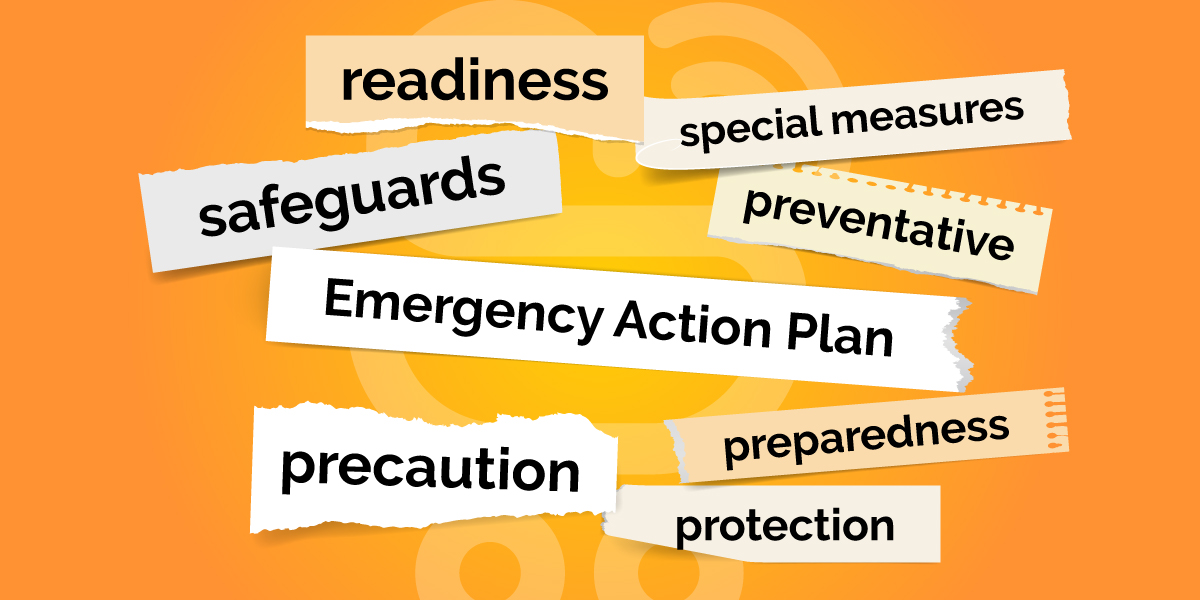
Tips for Teaching Children About Emergency Preparedness
It is essential to equip children with the knowledge and skills to handle emergencies.
- Emergency Contact Bracelets: Provide children with bracelets containing emergency contact information. In case they get separated from adults during an emergency, this information can help reunite them quickly.
- Buddy System: Encourage the buddy system, where children pair up with a friend or sibling during emergencies. Having a buddy increases the chances of mutual assistance and support.
- Personalized Emergency Songs: Create simple and catchy songs that teach emergency procedures. For example, a song about “Stop, Drop, and Roll” for fire safety or a tune that helps them remember important phone numbers.
- Safe Meeting Spots: Establish safe meeting spots both inside and outside the house. Teach children where to go in case of a fire or another emergency, promoting a sense of security and direction.
- Memory Games for Important Numbers: Turn memorizing important numbers into a game. Create flashcards or play memory games with emergency contact numbers, home address, and other essential information.
- Emergency Preparedness Scavenger Hunts: Organize scavenger hunts that focus on locating emergency supplies within the house. This not only familiarizes children with the location of emergency items but also makes learning fun.
- Storytelling for Coping Mechanisms: Use storytelling to explain coping mechanisms during emergencies. Craft stories that involve characters facing challenges and overcoming them by following safety procedures.
- Map Your Escape: Draw simple escape maps for various emergency scenarios, such as a fire or earthquake. Practice the evacuation routes with children so that they understand how to navigate safely.
- Incorporate Technology: Teach older children how to use emergency apps on smartphones. Show them how to access emergency services, share their location, and communicate with family members during emergencies.
- Emergency Role-Playing: Engage in role-playing scenarios to simulate emergency situations. This helps children practice what they’ve learned in a more interactive and memorable way.
- Animal Preparedness: Integrate lessons on pet safety and preparedness. Teach children how to care for and evacuate with pets during emergencies, emphasizing the importance of having a pet emergency kit.
- Schedule regular drills : Consistent practice is key to ensuring that children retain the information and skills they learn about emergency preparedness. Schedule regular drills and review sessions to reinforce their knowledge and keep their skills sharp.
- Focus on Communication: Teach children the importance of clear communication during emergencies. Practice simple phrases like “I need help” or “I’m here” so they can effectively communicate their needs to adults or emergency responders.
- Create an Emergency Kit: Help your child assemble a basic emergency kit that includes essential items such as water, non-perishable food, a flashlight, a first aid kit, and a whistle. Explain each item’s purpose and encourage your child to keep the kit in a designated place that is easily accessible during emergencies.
- Establish a Family Emergency Plan: Involve your child in creating a family emergency plan that outlines what to do in different scenarios, such as a fire or severe weather. Assign specific roles and responsibilities to each family member, and practice the plan regularly to ensure everyone knows what to do.
- Stay Informed: Keep your child informed about potential hazards in your area, such as natural disasters or community safety concerns. Discuss ways to stay informed, such as signing up for emergency alerts or listening to weather updates on the radio.
- Encourage Critical Thinking: Teach children to think critically and solve problems during emergencies. Encourage them to assess their surroundings, identify potential risks, and make quick decisions to keep themselves safe.
- Reassure and Support: Finally, reassure your child that they are not alone during emergencies and that help is available. Provide emotional support and encouragement, and praise them for their efforts to stay safe and help others.
The Importance of Emergency Preparedness for Children
Children are often more vulnerable during emergencies due to their limited understanding of the situation and lack of guidance and support. Teaching them about emergency preparedness not only empowers them to take action but also instills a sense of confidence and resilience that can help them cope with stressful situations.
Moreover, emergencies can happen anytime, anywhere, and being prepared can significantly reduce the impact of such events on children’s lives. By educating them about potential risks and teaching them how to respond appropriately, parents can help their children stay safe and possibly even save lives.
Conclusion
Preparing children for emergencies is a responsibility that every parent should take seriously. By teaching them essential skills and empowering them to take action, parents can help their children stay safe and resilient in the face of adversity. Preparing children for emergencies is not just a responsibility—it’s a necessity. By teaching them essential skills and empowering them to take action, parents can help their children stay safe and resilient in the face of adversity. Remember, it’s never too early to start teaching children about emergency preparedness, and the knowledge and skills they gain could make all the difference in an emergency situation.
And remember, you’re not alone in this journey. Our app, Stroller Patrol, is here to support you every step of the way. As the only neighborhood app that allows you to stay connected directly and in real-time with mindful parents and caregivers, Stroller Patrol creates a virtual village where we can all keep an eye out for each other’s children. Together, we can work towards creating safer communities and brighter futures for our children.
For more parenting tips and nanny tips, subscribe to our newsletter Together, we can ensure the safety and well-being of our children. Keep your kids safe!
Send us your questions and we’ll feature the answers on our site:
All questions will be posted as anonymous.



